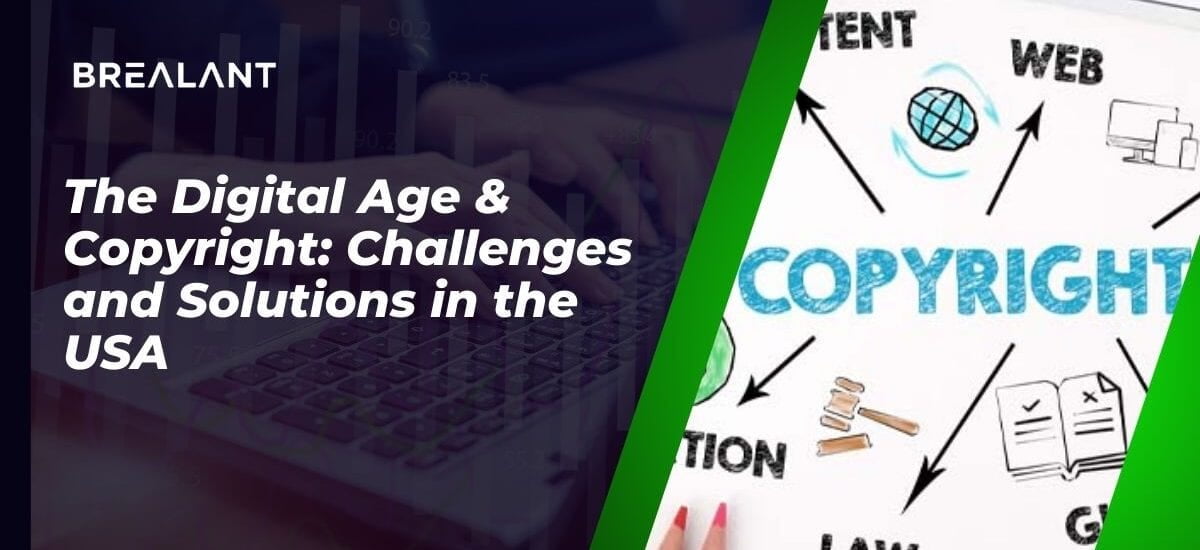
The Digital Age is upon us and with it come new questions about the way intellectual property is treated. While much has been written about copyright and trademark in recent years, much of the work has been done in the context of international law. With new technologies, it is not only easy to share information but also to disseminate copyrighted material without permission. The problem is that copyright law doesn't always keep up with the times. As a result, businesses and individuals face challenges when it comes to protecting their intellectual property.
Copyright and trademark have long been considered central components of intellectual property law. Laws forbidding imitation and protecting intellectual property date back to medieval times, and their influence can be seen in virtually every business sector. The rapid growth of technology has only served to compound these legal issues; today, intellectual property laws play an ever-more important role in our economy.
At first glance, much of what happens online seems immune from copyright and trademark laws. In many cases, when something is posted online without proper attribution or a valid trademark, it can result in legal action being taken against the party responsible.
This article will explore some of the challenges American businesses face when it comes to copyright and trademark within the digital age, with a focus on the USA.
What are some of the challenges facing businesses in the Digital Age?
There are various challenges businesses and individuals face when it comes to copyright protection in the Digital Age. Here are some of the prevalent issues faced by the business owners:
- Technology advances quickly, so business owners must constantly be on the lookout for new opportunities. However, this pace of change can be a challenge for businesses that are not always nimble enough to keep up.
- Additionally, new technologies offer new opportunities for thieves and pirates to steal valuable information and intellectual property.
- Copyright infringement can take many forms, including unauthorized use of your images or videos online, uploading unauthorized content, and copying others' work without giving them credit.
- Even if you are the rightful owner of the copyright, it's still possible to face legal action if your material is used without your approval or permission.
As a result, businesses need to take proactive measures to protect their data and copyright rights.
There are several solutions available to business owners who want to protect their digital footprint and copyright rights in the United States. One approach is to use a Content Security Policy (CSP). CSPs help protect against attacks that may attempt to steal sensitive information or intellectual property. Of course, this isn’t foolproof; hackers are always ingenuity and resourceful, so security measures must be continuously reinforced.
With the advent of technology, it has become increasingly difficult to protect one's intellectual property. Many argue that this is a good thing, as it leads to increased creativity and innovation. However, some argue that IP protection amounts to censorship.
What are your thoughts?
In the past, copyright law was designed to protect the creators of works (literary, artistic, etc.). Today, however, technological advancement has made protecting one's intellectual property more difficult. For example, software can be pirated easily and without consequence. In addition, file-sharing platforms like BitTorrent make it easy for users to share copyrighted material without authorization.
Copyright law in the United States is outdated and does not reflect the challenges of the digital age. Currently, copyright law is based on a physical model: the creator owns the copyright to their work from the moment it is created. This leads to problems when works are copied or shared online without permission. Copyright law needs to be updated so that it properly reflects the challenges of the digital age. Several solutions have been proposed, but there is still much debate over how best to address these issues.
Conclusion
The Digital Age has brought many positive changes. With the rise of technology, we have access to more information than ever before. However, it has also brought issues such as cybercrime and copyright infringement. The rise of the Internet and digital technologies has greatly reshaped the way people communicate, shop, learn, work, and entertain themselves. In light of this changing landscape, businesses and individuals must carefully consider their digital footprint and take steps to protect their rights in an increasingly connected world.
Given the stakes involved – both for businesses and individual users – solving these problems requires a comprehensive understanding of both copyright and trademark law as they apply to the digital age fiduciary provides such an understanding in clear, concise prose, making it an invaluable resource for anyone working within or contemplating entering the digital world. Get professional guidance and efficient IP solutions from the experts at Brealant. The firm is well-renowned for its services in the various aspects of intellectual property, from application to protection.

